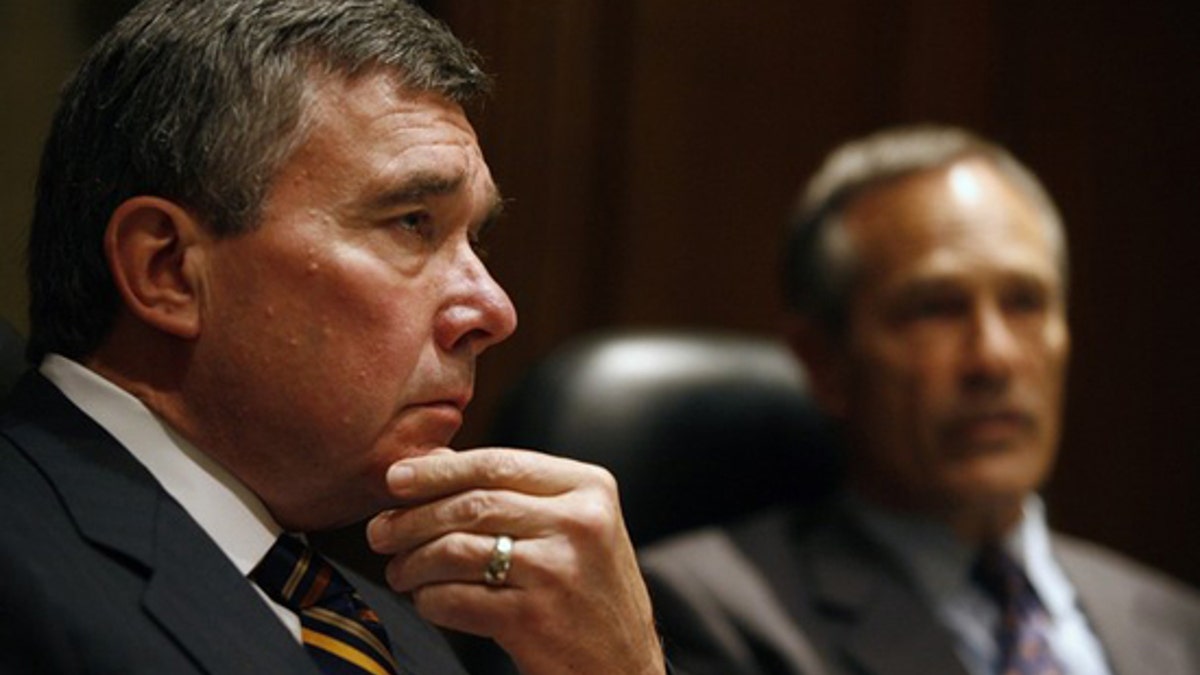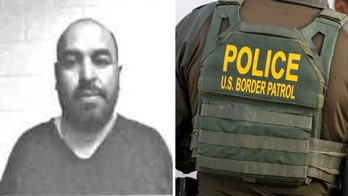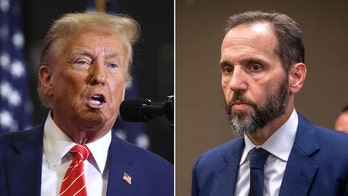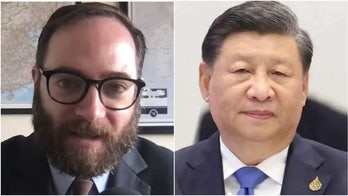
U.S. drug czar Gil Kerlikowske (L) and U.S. border czar Alan Bersin attend an interview with Reuters in Monterrey, northern Mexico September 3, 2009. (Reuters)
WASHINGTON -- President Obama's new strategy to treat the illicit drug trade as a public health issue rather than a crime is the strongest sign yet that the war on drugs as the nation has known it for a quarter of a century is over.
And the shift in focus from incarceration for possession of illegal drugs to prevention and treatment for using them has drawn support from unlikely quarters.
"Our reaction is generally favorable," said James Pasco, executive director of the Fraternal Order of Police, the largest law-enforcement labor organization in the country, which previously had expressed wariness of shifting away from crime enforcement.
Pasco said the war on drugs is not coming to an end; it's just shifting fronts.
"Any declaration of victory is premature, as is any declaration of loss," he said.
On Tuesday, the Obama administration released its first drug control plan, calling for a reduction in the rate of youth drug use by 15 percent over the next five years and for similar reductions in chronic drug use, drug abuse deaths and driving under the influence of drugs.
The new strategy boosts community-based anti-drug programs, encourages health care providers to screen for drug problems before addiction sets in and expands treatment beyond specialty centers to mainstream health care facilities.
"The key is the shift toward preventive and rehabilitative policies, as well as stronger law enforcement provisions," an administration official told Fox News. "The strategy is a new balanced and collaborative approach that emphasizes prevention, treatment, enforcement and international cooperation."
Pasco said his organization respects White House drug czar Gil Kerlikowske and has had "numerous" meetings with him and his staff over the strategy.
"No plan is perfect," he said, declining to criticize specific points. "This is a good solid step."
But some drug reform advocates question whether the president is just blowing smoke, pointing to the national drug control budget proposal released earlier this year that continues to spend about twice as much money on enforcement as it does on programs to reduce demand.
"The improved rhetoric is not matched by any fundamental shift in the budget or the broader thrust of the drug policy," said Ethan Nadelmann, executive director of the Drug Policy Alliance, which favors a drug policy overhaul.
Nadelmann praised some of Obama's changes, but he said he is disappointed with the continued focus on arresting, prosecuting and incarcerating large numbers of people.
Kerlikowske rejected that opinion and said there are many programs that combine interdiction and prevention.
The drug control office's budget request includes a 13 percent increase in spending on alcohol and drug prevention programs, along with a 3.7 percent increase for addiction treatment.
Pasco called Nadelmann's opinion a "red herring."
"You can say that about just any proposal that comes out of any administration," Pasco said.
The policy shift comes in the wake of several other drug policy reforms since Obama took office. Obama signed a measure repealing a two-decade-old ban on the use of federal money for needle-exchange programs to reduce the spread of HIV. His administration also said it won't target medical marijuana patients or caregivers as long as they comply with state laws and aren't fronts for drug traffickers.
"It changes the whole discussion about ending the war on drugs and recognizes that we have a responsibility to reduce our own drug use in this country," Kerlikowske said.
Kerlikowske criticized past drug strategies for measuring success by counting the number of children and teens who have not tried marijuana. At the same time, he said, the number of deaths from illegal and prescription drug overdoses was rising.
"Us facing that issue and dealing with it head on is important," he said.
The new drug plan encourages health care professionals to ask patients questions about drug use even during routine treatment so that early intervention is possible. It also helps more states set up electronic databases to identify doctors who are overprescribing addictive pain killers.
"Putting treatment into the primary health care discussion is critical," Kerlikowske said.
Earlier this year, Obama called on Congress to eliminate the disparity in sentencing that punishes crack crimes more heavily than those involving powder cocaine.
Fox News' Major Garrett, FoxNews.com's Stephen Clark and The Associated Press contributed to this report.




